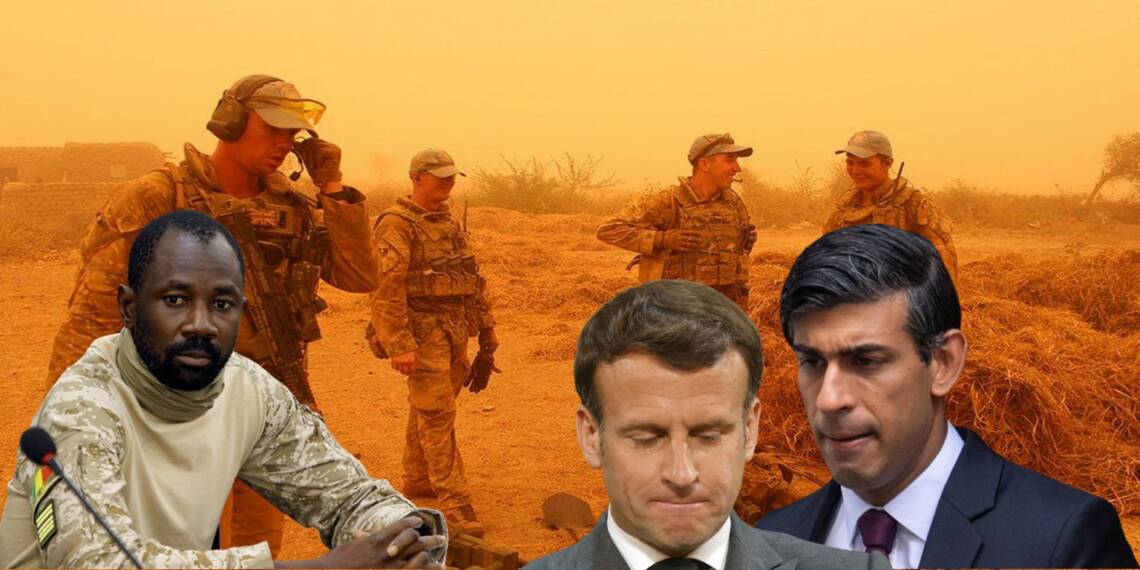U.N. peacekeeping force Mali: Rich in natural riches like gold, oil, and other minerals, the Sahel region is vulnerable to interference from superpowers like the USA, Europe, or China, all of which have complex geopolitical objectives in the area. For long, Mali, a landlocked country in West Africa, acted as a Western outpost to assist Western countries maintain their influence in the Sahel. The West’s fortunes, however, recently took a turn for the worst when France, along with several other EU members and Canada, declared the end of its ten-year military presence in Mali. The British forces’ withdrawal (U.N. peacekeeping force) from Mali is the latest fatality in the endless series of Western follies in the Sahel.
According to recent reports, Britain will pull out its 300 troops from a U.N. peacekeeping force in Mali following similar withdrawals this year by other Western nations, a government minister said on Monday.
A few months ago, France—alongside several EU states and Canada—announced the termination of its decade-long military involvement in Mali. While the French President Emmanuel Macron refused to admit failure, the Malian government and citizenry believe otherwise.
Recently, Mali’s interim prime minister Abdoulaye Idrissa Maïga strongly denounced France at the UN, saying they were “stabbed in the back” when the French military withdrew from the country.

“The world will remember that, after being abandoned in mid-air on 10 June 2021 by France’s unilateral decision to withdraw the Barkhane force from Mali, my country was then stabbed in the back by the French authorities,” said Maïga.
You see, the attitude towards Western nations in Mali and the Sahel changed dramatically between 2013 and 2021. The West, which was at first lauded as a saviour, is now accused of failing to control the security situation and even encouraging neo-colonial dependency patterns.
Western countries also lost the Malian public’s confidence owing to a lack of accountability over civilian losses during military operations. For instance, according to certain UN investigators, a French airstrike in January 2021, apparently on a militant position, hit a wedding in central Mali and killed 19 civilians, contradicting the official French account of events.
Additionally, despite West’s sustained military intervention since 2013, the violence has moved beyond Mali to Niger and Burkina Faso. Meanwhile, regional forces appear to be no better prepared to combat the terrorist menace. Indeed, violence in the three countries has increased year after year since 2017, with over 2,500 events and approximately 6,000 deaths expected in 2021.
Furthermore, the Malian government and people have constantly complained about Western affiliation with “terrorists”.
Also Read: French are truly and fully out and Mali is a Russian ally
The rise of Russia
When the French withdrew their troops from Mali, Russia began to step in and take the place of the European nation. With little time to spare, the Russian-affiliated Wagner group entered the scene and pledged to assist Mali in its fight against Islamic terrorism, a persistent problem for the nation. Additionally, the Wagner Group has already been closely collaborating with the Central African Republic (CAR), another former French colony.
These success tales would irrefutably increase support for Russian among the Sahel countries. Even in countries like Niger, which became the latest base for Western troops seeking to maintain their influence in the SAHEL region after French withdrawal from Mali, protests have begun against what the Nigeriens perceive as “colonial powers”.
Russia is regarded by several nations in the Sahel as a trustworthy partner in the fight against Islamism. This, combined with the West’s neo-colonial discourse and duplicity regarding multilateralism, the use of force, the rule of law, and democracy, would entice many countries to accept Russia as a dependable strategic ally.
https://www.youtube.com/watch?v=CvLcf3SRAcA








